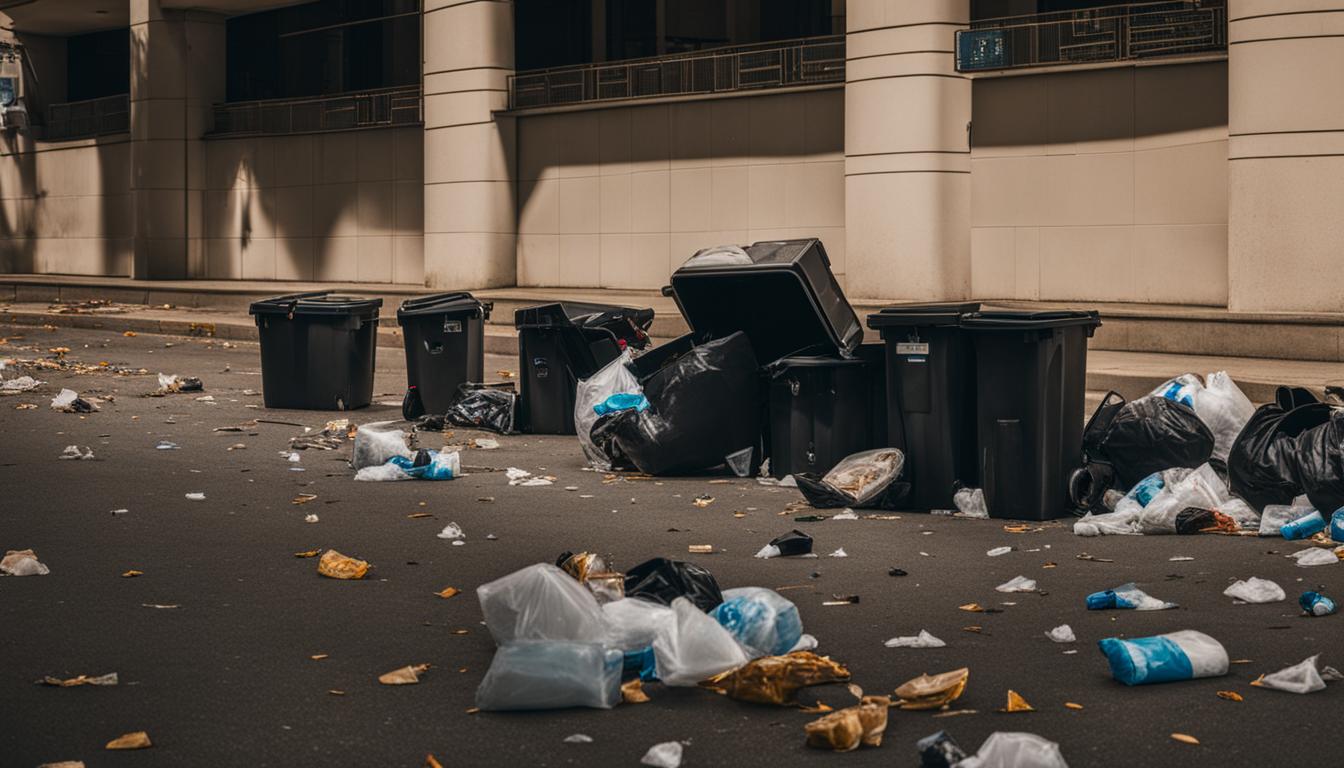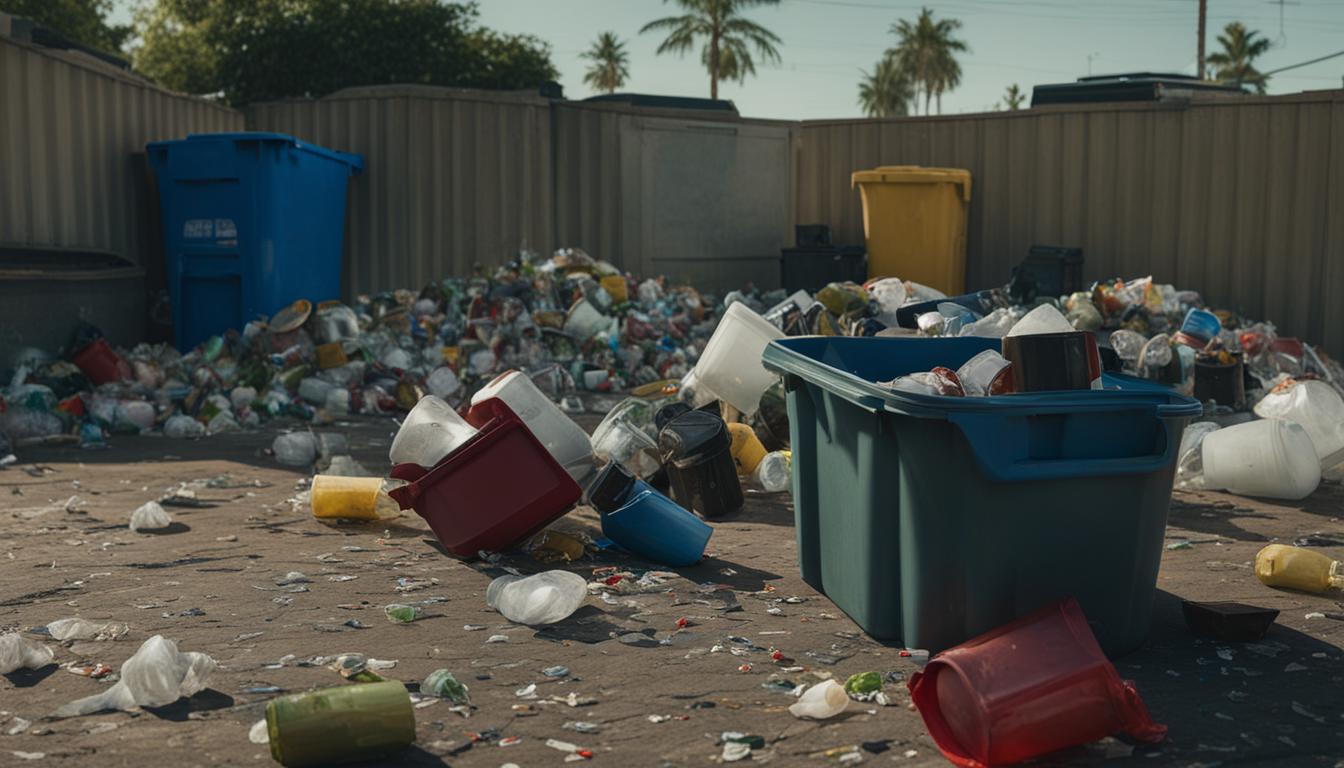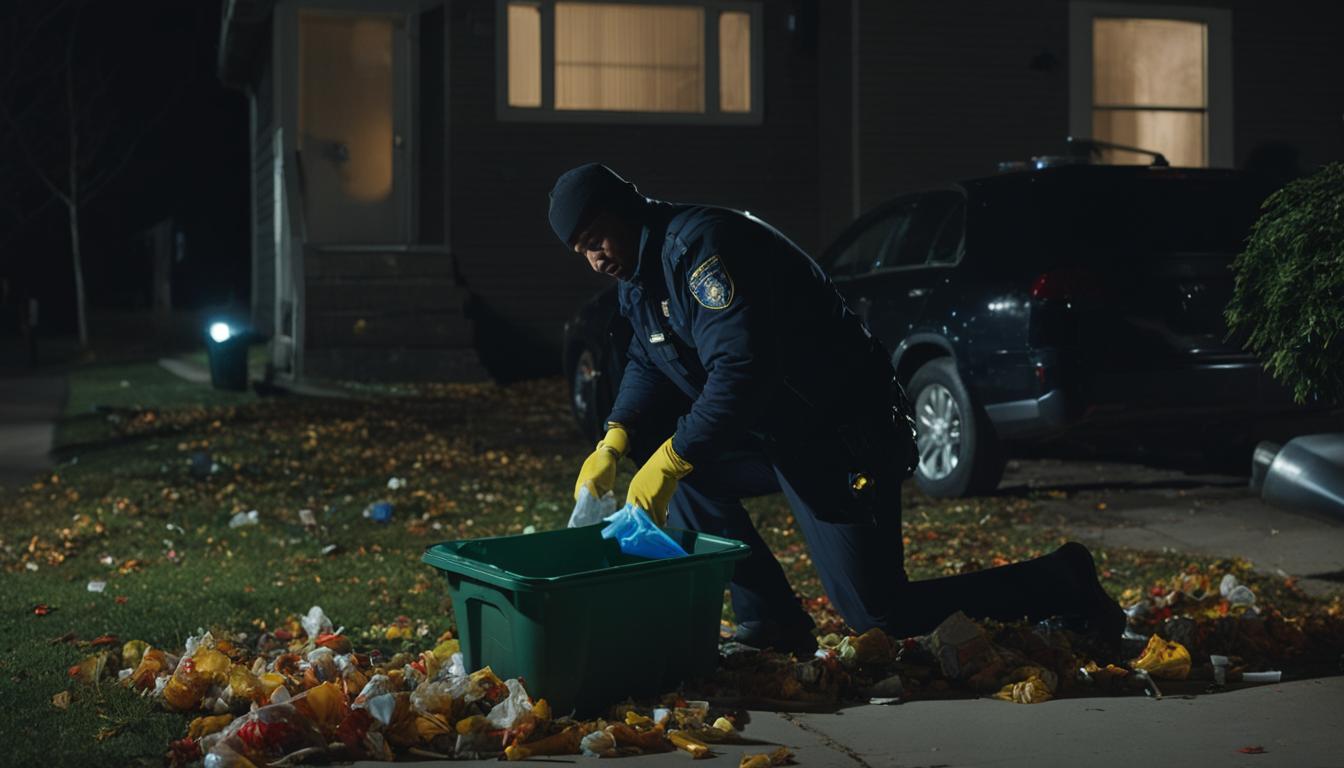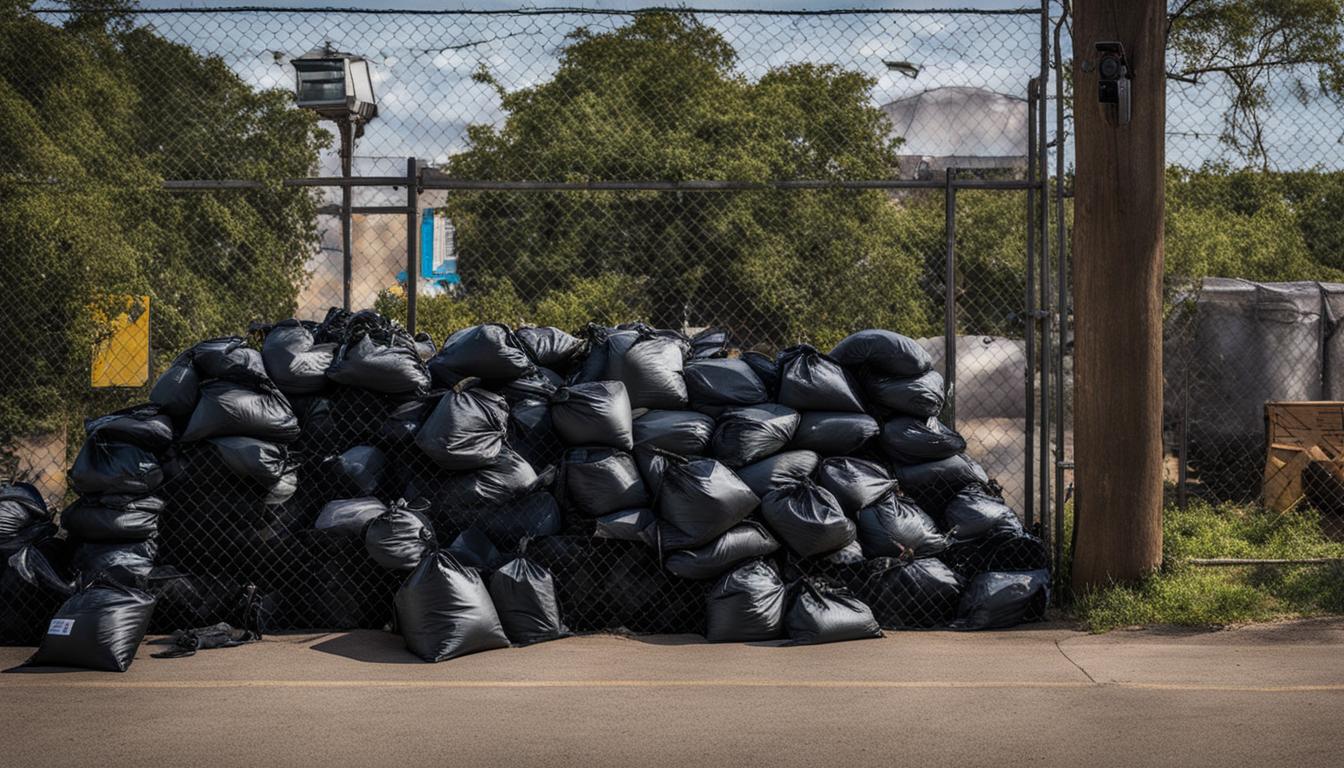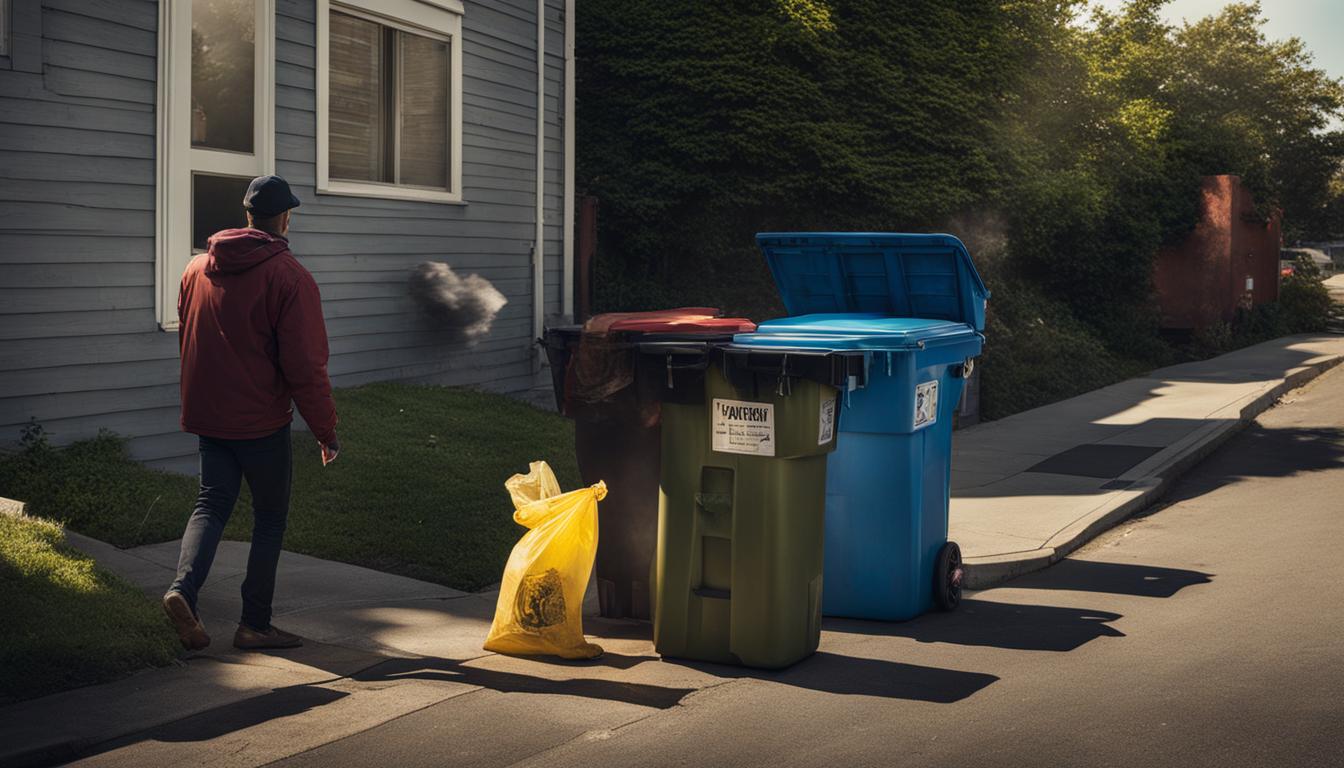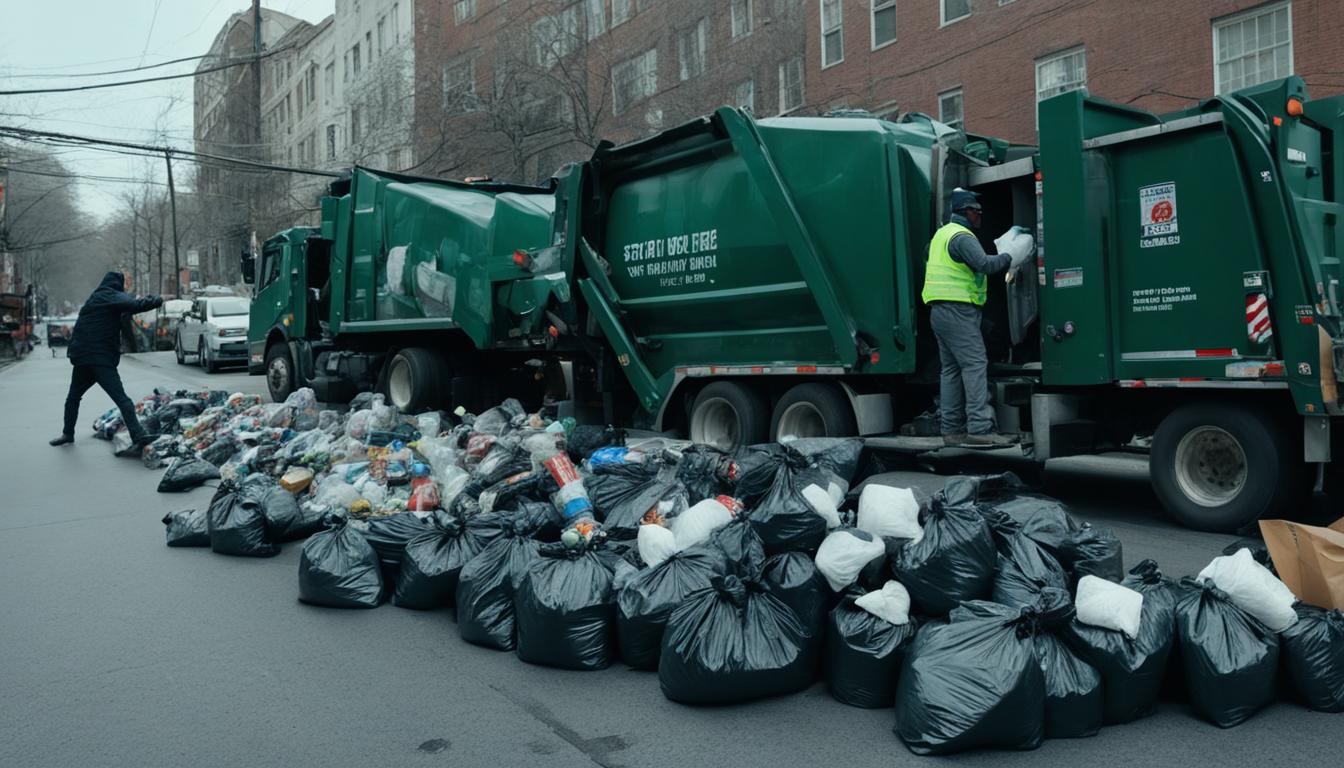Disclosure: This Post Contains Affiliate Links; We earn a commission on purchases.
In New Hampshire, the privacy of your trash is protected by law. The state’s Supreme Court has ruled that garbage is considered private, even when placed near the street for collection. This decision sets New Hampshire apart from other states and the U.S. Supreme Court, thanks to the stronger privacy protections offered by New Hampshire’s constitution.
When you dispose of personal items such as letters, bills, receipts, and prescription bottles in your household trash, you expect them to remain private. New Hampshire recognizes this expectation of privacy, making it illegal for the police to search your garbage without a warrant.
While you have a right to privacy regarding your trash, it is essential to note that trespassing laws still apply. Going through someone’s trash without permission on private property can result in charges. It’s crucial to respect others’ property rights and obtain consent before inspecting their trash.
Key Takeaways:
- New Hampshire considers garbage to be private, even when placed near the street for collection.
- It is illegal for police to search someone’s trash without a warrant in New Hampshire.
- Trespassing laws apply when going through someone’s trash without permission on private property.
- Respecting others’ property rights and obtaining consent is crucial before inspecting their trash.
Trash Diving Laws in New Hampshire
In New Hampshire, individuals enjoy certain privacy rights regarding their trash. However, there are no specific laws that explicitly forbid dumpster diving or garbage picking in the state. That said, it is essential for individuals to adhere to trespassing laws and respect the property rights of others when engaging in trash diving activities.
If someone decides to go through another person’s trash without permission on private property, they could potentially face charges of trespassing. It is crucial to recognize that while individuals have a right to privacy regarding their garbage, once it is placed in a public area for collection, such as the curb, it is considered public domain.
It is always advisable to obtain permission before diving into dumpsters or going through someone’s trash to avoid any legal complications.
To further illustrate the situation, here is a relevant quote:
“While there are no specific laws banning dumpster diving in New Hampshire, trespassing laws and property rights still apply. Respect and permission should be sought before diving into someone’s trash.”
Overall, while dumpster diving is not prohibited by law in New Hampshire, it is crucial to navigate this activity with awareness of your surroundings and a respect for personal property rights. By doing so, individuals can engage in trash diving while minimizing the potential legal risks associated with this practice.
Dumpster Diving Regulations in New Hampshire
In New Hampshire, dumpster diving is not explicitly regulated by specific laws. However, individuals engaging in dumpster diving must still adhere to trespassing laws and ensure they are conducting their activities in public areas or with the owner’s permission on private property. Diving into dumpsters on private property without permission may result in charges of trespassing.
While there are no specific regulations governing dumpster diving, it is always advisable to stay informed about local city or municipal ordinances. These ordinances may contain provisions related to waste management and dumpster diving, which individuals should be familiar with to ensure compliance.
Dumpster diving is a practice that involves searching through discarded materials with the aim of finding useful items. It is often associated with reducing waste and promoting resourcefulness. However, it is crucial to engage in dumpster diving responsibly and with respect for property rights.
To gain a clearer understanding of dumpster diving regulations and guidelines, it is recommended to consult the appropriate authorities or legal professionals in your area.
Benefits of Dumpster Diving:
- Reduces waste and promotes recycling
- Economically advantageous for those seeking affordable items
- Encourages resourcefulness and creativity
- Helps combat consumerism by finding value in discarded items
While dumpster diving can offer several benefits, it is important to always exercise caution, respect private property, and comply with local laws and regulations.
“Dumpster diving can be a way to reduce waste and find useful items, but it’s important to remember that property rights and trespassing laws still apply. Be sure to obtain permission before diving into dumpsters, and always respect the privacy of others.”
Keeping these considerations in mind, individuals can responsibly engage in dumpster diving as a means of reducing waste and potentially finding valuable items.
| Pros of Dumpster Diving | Cons of Dumpster Diving |
|---|---|
| Reduces waste and promotes sustainability | Potential legal implications if trespassing laws are violated |
| Provides access to free or low-cost items | Possibility of encountering hazardous materials |
| Promotes resourcefulness and creativity | Requires time and effort to search through discarded items |
Dumpster diving can have its advantages, such as reducing waste, promoting sustainability, and inspiring resourcefulness. However, individuals must always be mindful of the legal implications and potential hazards associated with the practice. By following proper guidelines and respecting property rights, individuals can engage in dumpster diving responsibly and ethically.
Your Rights Regarding Trash in New Hampshire
In New Hampshire, individuals have the right to privacy when it comes to their trash. This means that personal items like letters, bills, receipts, and prescription bottles that are regularly discarded in household trash are considered private and not intended for public consumption. The New Hampshire Supreme Court recognizes the expectation of privacy in garbage, making it illegal for the police to search someone’s trash without a warrant.
However, it is crucial to understand that once trash is placed in a public area for collection, such as the curb, the expectation of privacy diminishes. This means that others may have access to your trash, and the information contained within it may no longer be protected. To safeguard your privacy, it is always best to take precautions and dispose of personal information securely.
Consider the following measures to protect your privacy:
- Shred important documents containing personal information before disposal.
- Separate sensitive items like prescription bottles or financial statements and dispose of them separately.
- Consider investing in a lockable trash can or using a secure trash disposal service.
Quotes:
“Personal information can be easily exploited if it falls into the wrong hands. Taking steps to protect your privacy when disposing of trash is essential.” – Jane Smith, Privacy Advocate
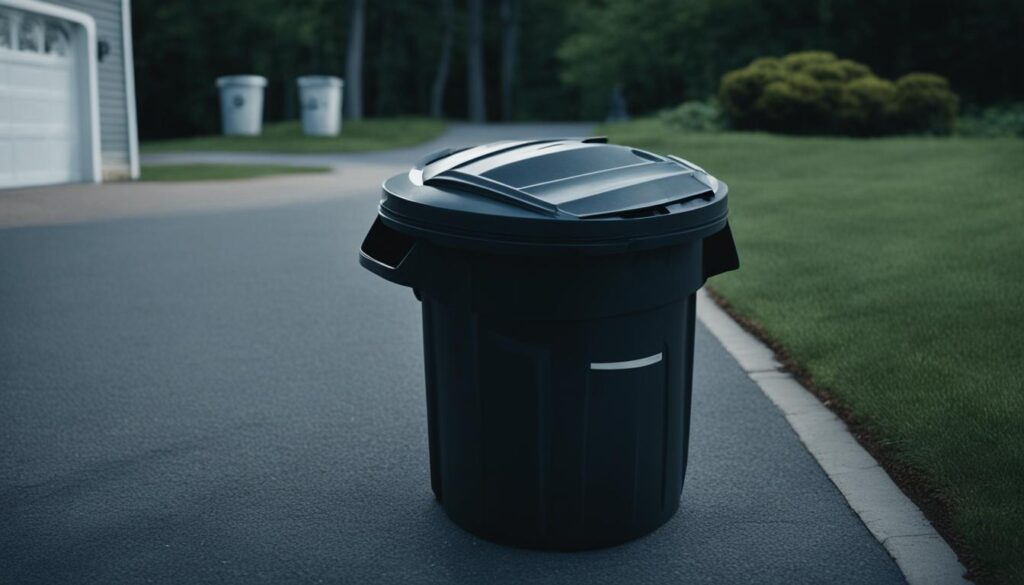
By being mindful of your privacy rights and taking the necessary precautions, you can ensure that your personal information remains confidential, even when it comes to your trash.
| Actions to Protect Your Privacy | Benefits |
|---|---|
| Shredding important documents | Reduces the risk of identity theft and unauthorized access to personal information |
| Separating sensitive items | Minimizes the likelihood of exposing sensitive information to others |
| Using a lockable trash can or secure trash disposal service | Enhances the security of discarded items and prevents unauthorized access |
Waste Disposal Laws in New Hampshire
New Hampshire has implemented strict waste disposal laws to ensure the proper management and disposal of garbage, safeguarding public health and the environment. Compliance with these laws is essential for both individuals and businesses in the state. By disposing of waste in an appropriate manner, everyone can contribute to a cleaner and safer New Hampshire.
Failure to abide by waste disposal laws can result in fines and penalties. Therefore, it is crucial to understand and follow the regulations outlined by the state. These laws cover various aspects of waste management, including collection, transportation, recycling, and hazardous waste disposal.
“Proper waste disposal is not only a legal requirement but also an ethical responsibility. It ensures a sustainable future for our communities and protects the environment for future generations.” – Department of Environmental Services, New Hampshire
To help individuals and businesses comply with waste disposal laws, the Department of Environmental Services provides guidelines and resources. These resources offer information on proper waste sorting and disposal methods, as well as the locations of authorized disposal facilities and recycling centers.
The Key Requirements of Waste Disposal Laws in New Hampshire
- Segregation of different types of waste, such as recyclables, organic materials, and hazardous substances
- Proper packaging and labeling of hazardous waste to ensure safe handling and transportation
- Adherence to specified collection schedules and guidelines
- Utilization of authorized recycling facilities for recyclable materials
- Responsible disposal of hazardous waste through approved disposal facilities
- Compliance with the state’s regulations on landfill operations and closure
By following these requirements, individuals and businesses can contribute to minimizing environmental pollution and promoting sustainable waste management practices in New Hampshire.
| Violation | Fine/Penalty |
|---|---|
| Improper waste disposal | Up to $1,000 per violation |
| Illegal hazardous waste disposal | Up to $25,000 per violation |
| Failure to comply with recycling requirements | Up to $500 per violation |
These fines and penalties serve as a deterrent to ensure compliance and maintain a clean and sustainable environment for all residents of New Hampshire.
It is important to note that dumpster diving, when conducted in public areas or with the owner’s permission on private property, does not violate waste disposal laws. However, it is crucial to respect property rights and trespassing laws when engaging in this activity.
Conclusion
While dumpster diving is not explicitly illegal in New Hampshire, it is essential for individuals to be mindful of trespassing laws and respect the property rights of others. Before diving into dumpsters or going through someone’s trash on private property, it is crucial to obtain permission. Although individuals have a right to privacy regarding their garbage, once it is placed in a public area for collection, the expectation of privacy diminishes.
To ensure compliance and protect individual rights, it is advisable to check local city or municipal ordinances for any specific regulations regarding waste management and dumpster diving. Being aware of the laws and regulations surrounding trash inspection in New Hampshire is crucial. By staying informed, individuals can responsibly engage in dumpster diving while respecting the boundaries set by the law.
Remember, while dumpster diving can be an opportunity to find valuable items or reduce waste, it is important to approach it in a lawful and respectful manner. By understanding the legality of dumpster diving in New Hampshire and adhering to the regulations, individuals can enjoy this activity while minimizing any potential legal risks.
Source Links
- https://www.cbsnews.com/news/in-nh-your-trash-is-private/
- https://bizarrehobby.com/new-hampshire-dumpster-diving/
- https://www.legalmatch.com/law-library/article/is-dumpster-diving-illegal.html

Subscribe to Our Newsletter

